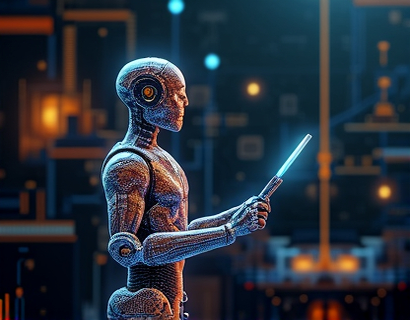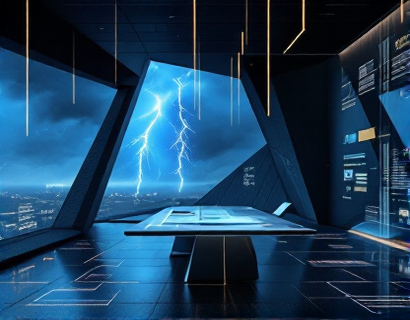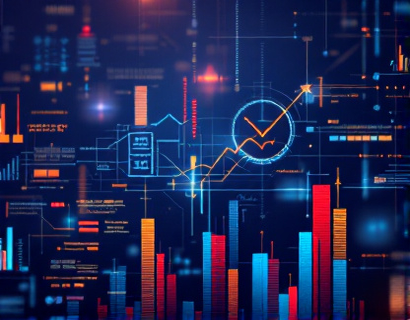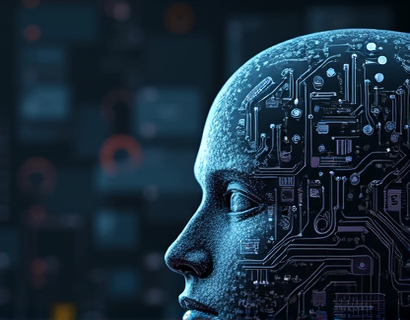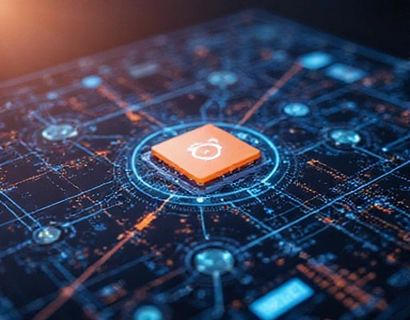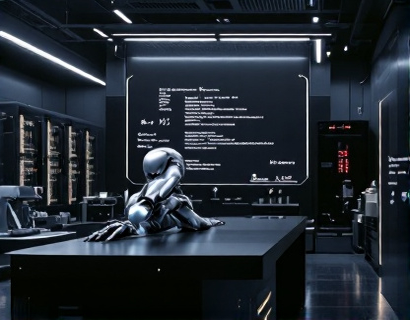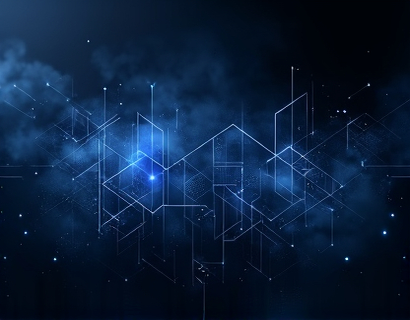Decentralized DAOs: Pioneering Community-Driven Innovation for Web3 Protocol Governance
In the rapidly evolving landscape of Web3, decentralized autonomous organizations (DAOs) are emerging as a transformative force, redefining how digital protocols are governed and managed. This guide delves into the core principles and mechanisms of DAOs, highlighting their role in empowering communities, ensuring transparency, and scaling innovative solutions for Web3 governance. By exploring the intersection of technology and community, we aim to shed light on how DAOs are shaping a more interconnected and decentralized digital future.
Understanding Decentralized DAOs
At their core, DAOs are organizations governed by smart contracts on a blockchain, allowing for decentralized decision-making and management. Unlike traditional hierarchical structures, DAOs operate on a peer-to-peer basis, where members collectively make decisions through voting mechanisms. This shift from centralized to decentralized governance is a cornerstone of Web3, promoting a more democratic and inclusive approach to digital protocol management.
Community Empowerment through DAOs
One of the most significant advantages of DAOs is their ability to empower communities. By removing intermediaries and central authorities, DAOs enable stakeholders to have a direct say in the direction and development of Web3 protocols. This democratization of governance fosters a sense of ownership and responsibility among community members, driving engagement and innovation. For instance, community-driven projects can propose, discuss, and vote on updates, ensuring that the evolution of the protocol aligns with the collective vision and needs of its users.
Transparency in DAO Governance
Transparency is a fundamental principle of DAOs, achieved through the immutable and public nature of blockchain technology. All transactions, proposals, and voting results are recorded on the blockchain, making them accessible to anyone. This level of transparency builds trust among community members and external stakeholders, as there is no room for hidden agendas or manipulation. The open ledger also facilitates auditing and accountability, ensuring that funds and resources are used efficiently and ethically.
Scalability and Efficiency in DAO Management
Scalability is a critical factor in the success of DAOs, especially as Web3 protocols grow in complexity and user base. DAOs leverage smart contracts to automate routine tasks, reducing the burden on human administrators and enabling seamless operations at scale. Automated voting systems, for example, can handle a large number of participants without compromising efficiency. Additionally, modular smart contract designs allow for the expansion and customization of governance structures, adapting to the evolving needs of the community and the protocol.
Case Studies: DAOs in Action
Several projects have successfully implemented DAO models, showcasing their potential in Web3 governance. One notable example is the Ethereum Improvement Proposals (EIP) process, where community members can propose and vote on changes to the Ethereum protocol. This decentralized approach ensures that the network remains adaptable and responsive to the needs of its users. Another example is the DAO Stack, a suite of tools designed to facilitate the creation and management of DAOs, providing a robust framework for community-driven governance.
Another compelling case is the Aragon platform, which offers a comprehensive suite of tools for building and managing DAOs. Aragon enables the creation of custom governance models, token management, and community engagement features, making it easier for new projects to adopt DAO governance. These case studies demonstrate the versatility and practical applications of DAOs in various Web3 contexts.
Challenges and Considerations
While DAOs offer numerous benefits, they also come with challenges that need to be addressed. One significant issue is the technical barrier to entry, as understanding blockchain and smart contracts requires a certain level of expertise. To mitigate this, user-friendly DAO platforms and educational resources are essential in making DAOs accessible to a broader audience. Additionally, the legal and regulatory landscape for DAOs is still evolving, and clarity in this area is crucial for widespread adoption.
Another challenge is the potential for governance attacks, such as sybil attacks, where a single entity gains disproportionate influence by creating multiple pseudonymous identities. Implementing robust security measures and consensus mechanisms is vital to safeguarding the integrity of DAO governance processes. Community education and best practices can also help mitigate these risks, fostering a more secure and resilient DAO ecosystem.
Future Prospects of DAOs in Web3
The future of DAOs in Web3 is promising, with ongoing developments poised to enhance their functionality and adoption. Advancements in blockchain technology, such as layer 2 solutions and cross-chain interoperability, will further improve the scalability and efficiency of DAOs. The integration of artificial intelligence and machine learning can also optimize decision-making processes, providing data-driven insights to community members.
Moreover, the convergence of DAOs with other Web3 components, such as decentralized finance (DeFi) and non-fungible tokens (NFTs), will create more complex and dynamic governance models. As the ecosystem matures, we can expect to see more sophisticated tools and platforms that simplify the DAO experience, making it more inclusive and user-friendly. The collective effort of developers, policymakers, and community members will be crucial in shaping a decentralized future where DAOs play a central role in governance and innovation.
Conclusion
Decentralized DAOs represent a paradigm shift in Web3 governance, offering a powerful framework for community-driven innovation. By empowering communities, ensuring transparency, and scaling efficient solutions, DAOs are poised to revolutionize how digital protocols are managed. As the technology continues to evolve, the potential for DAOs to shape a more interconnected and decentralized digital world is immense. Embracing this transformative approach will be key to unlocking the full potential of Web3 and building a future where technology serves the collective good.









